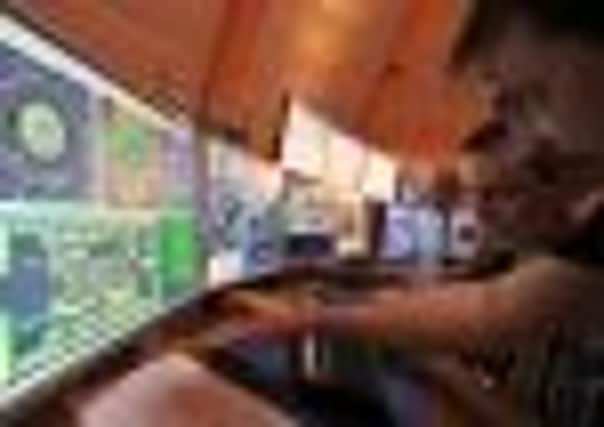Albert Einstein may be right about speed of light after all, Cern admits


The world of science was upended last year after startling findings from the Cern laboratory in Switzerland suggested particles called neutrinos had been recorded travelling faster than the speed of light, contradicting the Special Theory of Relativity.
Einstein’s theory says that nothing can travel faster than light. If it could, time travel would be possible.
Advertisement
Hide AdAdvertisement
Hide AdHowever, now physicists are to run new tests after finding two possible problems with the Opera experiment carried out last September.
James Gillies, a spokesman for Cern (the European Organisation for Nuclear Research) said the results that called into question Einstein’s theory were now in doubt.
The faster-than-light finding was recorded when 15,000 neutrino beams were pumped over three years from Cern to an underground Italian laboratory at Gran Sasso near Rome.
“A possible explanation has been found. But we won’t know until we have tested it out with a new beam to Gran Sasso,” Mr Gillies said.
The two problems the team has identified would have opposing effects on the apparent speed.
On the one hand, the team said there is a problem in the “oscillator” that provides a ticking clock to the experiment in the intervals between the synchronisations of GPS equipment. This is used to provide start and stop times for the measurement as well as precise distance information.
That problem would increase the measured time of the neutrinos’ flight, in turn reducing the surprising faster-than-light effect. But the team also found a problem in the optical fibre connection between the GPS signal and the experiment’s main clock.
In contrast, the team said that effect would increase the neutrinos’ apparent speed.
Cern said new measurements would be taken in May.
Advertisement
Hide AdAdvertisement
Hide AdA second test whose results were announced in November appeared to provide further evidence that neutrinos were travelling faster than light. But many experts remained sceptical.
Edward Blucher, chairman of the Department of Physics at the University of Chicago, said: “I don’t think I met anyone who said I bet it’s going to be true.
“I think that the research team ran out of ideas of what could be wrong and they decided to present it. Maybe they should have waited a few more months.”